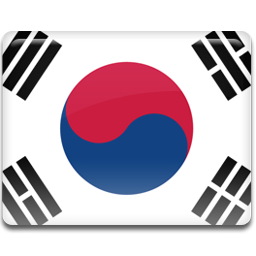The long anticipated Korea-U.S. Free Trade Agreement (KORUS-FTA) was implemented on March 15, 2012 becoming our nation’s largest FTA since NAFTA. The agreement has the potential to increase U.S. exports to Korea by approximately USD 10-12 billion, and it will be especially beneficial for U.S. SMEs. In 2009, nearly 18,000 SMEs exported some USD 8.4 billion worth of merchandise to Korea.
Total 2011 U.S.-Korea trade exceeded USD 100 billion for the first time ever. U.S. exports reached an all time high of USD 43.505 billion. U.S. exports increased 12% over 2010 levels.
Korea is the United States’ seventh largest trading partner. The U.S. is the third largest exporter to Korea with a 9 percent market share. Key competitors include China with 16.8 percent, Japan with 15.3 percent, and the EU’s 27 nations with 10%. With the EU having already implemented its FTA with Korea, U.S. firms will now again be in a stronger competitive situation following KORUS implementation. (China’s trade reflects significant re-export activity.)
U.S. goods and services trade with Korea totaled $87 billion in 2009 (latest data available for goods and services trade combined). Exports totaled $41 billion; Imports totaled $46 billion.
U.S. goods exports to Korea in 2010 were $38.8 billion, up 35.8% ($10.2 billion) from 2009, and up 116% from 1994 (the year prior to Uruguay Round).
*According to Office of the United States Trade Representative
Korea’s projected 2012 GDP growth is forecasted at about 3.6%. Its commercial banks maintain strong reserves in case of a possible global slow down or difficulties in the Euro zone.
Korea will continue to focus its development on key economic growth sectors. Patents and trademarks issued by the Korean Patent Office (PTO) exceeded 362,000 filings (2010). The increasing trend in local patent and trademark filings reflects the move towards more technology intensive and capital intensive industries and services.
Resources
Embassy of the United States in Seoul, Korea
Export.gov: Doing Business in Korea
Key Facts About the U.S.-South Korea Trade Agreement
Korean Embassy in the United States of America
Office of the U.S. Trade Representative - South Korea
Office of the U.S. Trade Representative (USTR) is responsible for developing and coordinating U.S. international trade, commodity, and direct investment policy, and overseeing negotiations with other countries.
Trade in Goods with Korea, South
U.S. State Department Background Notes
Background Notes include facts about the land, people, history, government, political conditions, economy, and foreign relations of independent states, some dependencies, and areas of special sovereignty.
Posted at 11:48 AM
Strategic Partnerships and New Markets
Strategic Partnerships and New Markets
Global Opportunities and New Markets
Global Opportunities and New Markets



